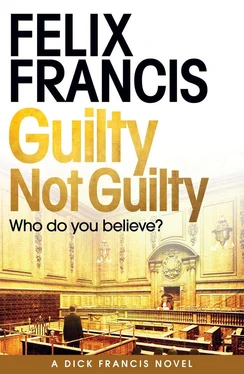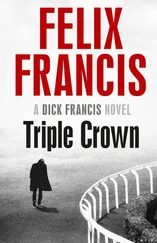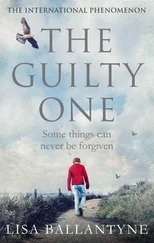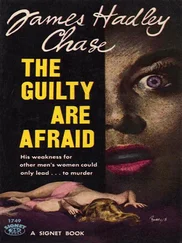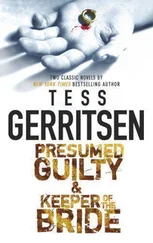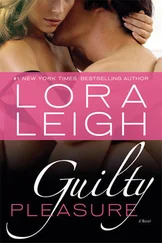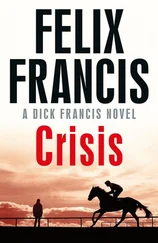Felix Francis
Guilty Not Guilty
With my thanks to
Miles Bennett, barrister
Julia Needham, barrister
William Barlow, BH Steward
Jo Dickinson, my editor
and, as always, to Debbie
In England and Wales, lawyers fall into two categories, barristers and solicitors, dependent on their course of qualification. Barristers are regulated by the Bar Council and solicitors by the Law Society. Scotland and Northern Ireland have their own separate judicial systems.
A barrister specializing in criminal law acts as an advocate in court, arguing cases in front of juries in the Crown Court or in front of senior judges in the Court of Appeal, the High Court of Justice, and the Supreme Court of the United Kingdom, whereas a solicitor does everything else that requires compliance with the law, such as wills, contracts, divorce petitions, transfers of property etc. In addition, in criminal cases, solicitors generally prepare the ‘brief’, the documentation in the case. A barrister may act as either the prosecution or defence counsel, but not as both in the same trial!
In the English criminal justice system, the accused will generally appoint a solicitor to advise them (or have one appointed for them). If the case goes to trial in the Crown Court, the solicitor will instruct a barrister to act as the advocate in the proceedings. Throughout the case, the solicitor and the barrister work closely together to plan strategy. There is no distinction in seniority due to their separate roles.
A Queen’s Counsel, QC, is a senior member of the legal profession, usually, but not always, a barrister, and the term is an honorary title that conveys esteem, experience and recognition within the ranks of lawyers. Persons appointed QC will have made a substantial contribution to the administration and delivery of the law.
Unlike in the United States, where it effectively means ‘lawyer’, the term ‘attorney’ in the UK is reserved for someone who is appointed to act specifically on someone else’s behalf, often through a power of attorney document. Such an attorney may be a lawyer but is often a non-legally-qualified family member.
Judges in England and Wales are selected by the politically-independent Judicial Appointments Commission. They are chosen solely on merit from the ranks of senior lawyers, mostly barristers. Judges are never elected, nor appointed by the holder of a political office.
In this book, lawyers, both barristers and solicitors are referred to using these terms, and the court proceedings are described in accordance with generally accepted practice in England and Wales.
It is said that everyone over a certain age can remember what they were doing when they heard that President Kennedy had been assassinated, or that Princess Diana had been killed in a Paris car crash, but I, for one, could recall all too clearly where I was standing when a policeman told me that my wife had been murdered.
‘Detective Sergeant Dowdeswell, Thames Valley Police,’ announced the plain-clothed officer, holding out his police warrant card. I glanced down at it. ‘This is PC Roberts, Warwickshire Constabulary.’ He indicated towards a uniformed officer by his side. ‘Are you The Honourable William Gordon-Russell?’
I was, although I never used that name.
‘Bill Russell,’ I said, nodding. ‘That’s me.’
The detective seemed slightly confused but quickly recovered.
‘From Banbury in Oxfordshire?’
‘Yes,’ I said. ‘Well, I live just outside Banbury.’
‘The Old Forge in Hanwell?’
‘Yes,’ I said again, nervously. ‘That’s right. Now what’s this all about?’
‘Bit of bad news, sir, I’m afraid,’ he said.
Not more. I’d had nothing but bad news for weeks.
‘What is it now?’ I asked with a sigh, fearing the worst.
That’s when he told me. Brusquely and without any compassion.
‘Murdered?’ I said, my voice somewhat squeaky from the sudden constriction I could feel in my throat. I also felt weak at the knees.
‘I’m afraid so, sir,’ the policeman said.
‘How?’ I asked. ‘And where?’
‘All in good time,’ the policeman said. ‘Now, sir, we would like you to come with us.’
It all sounded rather official.
‘Where to?’ I asked.
‘The station,’ he replied, and I didn’t think he meant the railway station.
‘I’d rather go and see my wife,’ I said.
‘I’m afraid that won’t be possible at this time. You need to come with us.’
There was something about the policeman’s tone I didn’t like.
‘Am I being arrested?’ I asked.
‘No, sir. We just need to ask you some questions.’ He said it in a manner that made me think that I might very well be arrested if I didn’t play ball.
‘But I have duties to fulfil here,’ I said. ‘I can’t just leave.’
That seemed to flummox him somewhat.
‘What duties?’
‘I’m a steward.’
‘A steward?’
‘Yes,’ I said. ‘I am one of the four stewards at the race meeting this afternoon. We are responsible for ensuring the Rules of Racing are observed.’
‘Oh,’ he said, suddenly nodding in understanding. Perhaps he’d thought I would be serving drinks or keeping the crowd in order.
The three of us were standing alone in the Stewards’ Room, which was attached to the weighing room at Warwick Racecourse. It was just after one-thirty in the afternoon. The first race was due off at two.
‘Someone else will have to take over,’ stated the detective unequivocally.
Indeed they would. Even if I hadn’t had to go with the policemen, I was no longer in a fit state to adjudicate on a children’s game of tiddlywinks, let alone six competitive horse races.
I suddenly felt very unwell.
I sat down heavily on one of the chairs and leaned my head down on the table.
‘Are you all right, sir?’ asked the detective.
‘No,’ I said, without looking up.
Murdered!
‘Here,’ said the policeman, holding out a glass of water. ‘Drink this. My colleague has gone to fetch medical assistance.’
I drank the water.
‘I don’t need medical assistance,’ I said. ‘It’s just the shock, that’s all.’
How could Amelia be murdered? Suicide I could have understood. We had lived on that knife-edge for the past three years. But murder? Surely not. Who would have wanted to murder the kindest and gentlest person on this earth?
‘Her brother,’ I said, glancing up at the detective. ‘Now that’s who you ought to question.’
‘That’s funny,’ he replied without smiling. ‘That’s exactly what he said about you.’
‘So you’ve spoken to him?’
He didn’t answer and I sensed he was berating himself for revealing anything at all.
One of the racecourse doctors arrived carrying his regulation bright-red medical kit slung over his shoulder. Dr Jack Westcott. I knew him well. He was a long-time friend. His regular job was as my GP but his role at the races was to be on hand to tend to any fallen jockeys. An unwell steward was clearly also within his remit, especially one who was his regular patient.
‘Hi, Bill,’ he said, crouching down to my level. ‘What’s the problem?’
‘I feel a little faint, Jack, that’s all. I’ve just had some bad news.’
‘Not Amelia, I hope,’ he said.
He was only too well aware of how badly our lives had been in turmoil. Over the previous three years, Jack had acted not only as our family doctor, but also as our confidant and unofficial therapist.
I nodded. ‘She’s been found...’
Читать дальше
